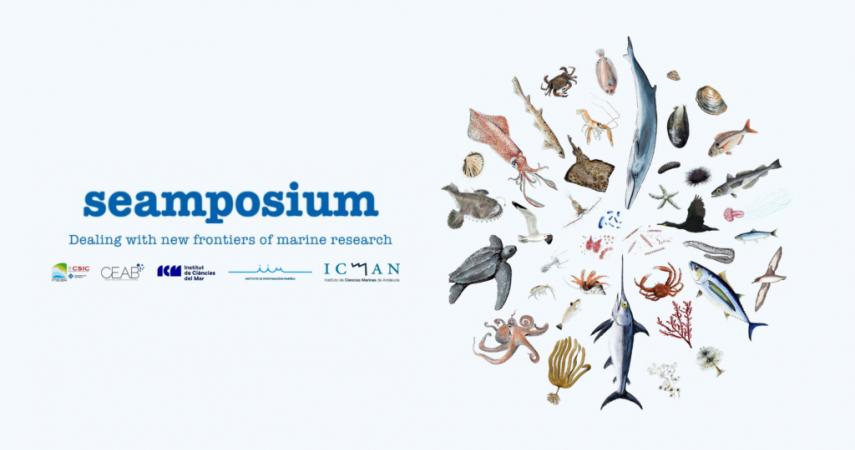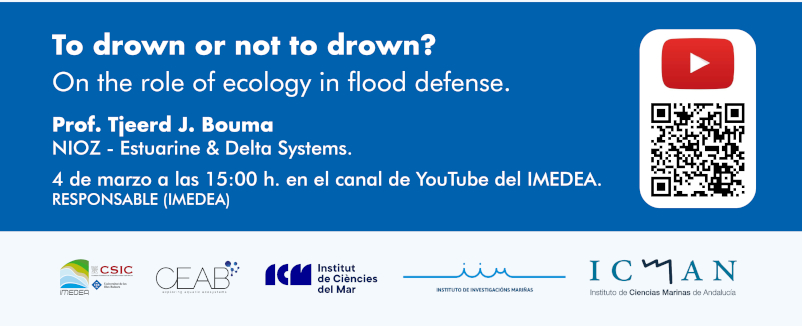To drown or not to drown? On the role of ecology in flood defense
Seamposium 2021 | Dealing with new frontiers of marine research

Con motivo de la Década de las Ciencias Marinas impulsada por la ONU (#ODS14) que pretende generar un marco común que garantice que las ciencias marinas respaldan plenamente las acciones para gestionar de manera sostenible los océanos y mares del mundo, y alcanzar así los objetivos de la Agenda 2030 para el Desarrollo Sostenible, los centros de marinos del CSIC: IMEDEA, CEAB, ICM, ICMAN, y el IIM hemos organizado un ciclo de conferencias conjunto titulado “Seamposium: Dealing with new frontiers of marine research” por el cual se crea un Foro de discusión entorno a un seminario mensual realizado por un experto reconocido en diferentes temáticas marinas.
To drown or not to drown? On the role of ecology in flood defense
Marine ecosystem engineers are species that alter their environment and therefore interact with the forces originating from tidal currents and waves. Biophysical interactions by ecosystem engineers (e.g. vegetation like salt marshes, mangroves, seagrass, aquatic water plants, reef forming animals like oysters and mussels, and bioturbating animals living in the sea floor) can have major consequences for the functioning and development of estuarine and marine systems. Tjeerd Bouma is interested in obtaining a better understanding of ecosystem engineering as a strategy (fundamental ecology), the thresholds ecosystem engineers encounter for establishment to overcome bottle necks in ecosystem restoration, and the influence ecosystem engineers have on ecosystem functioning by altering resource fluxes, biodiversity, ecosystem resilience and landscape evolution, with management implications and specifically the opportunities this offers for the benefit of humanity generating ecosystem services like e.g. Nature Based Flood Defenses.

